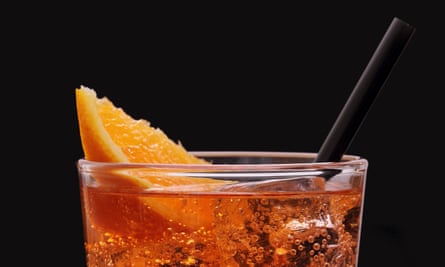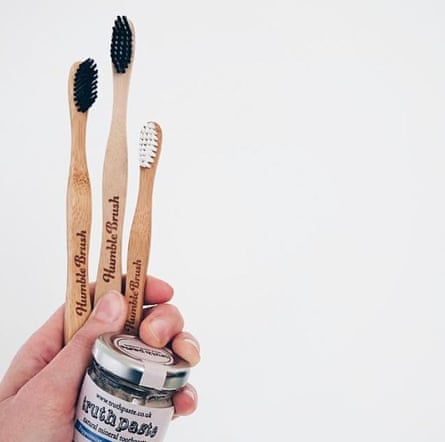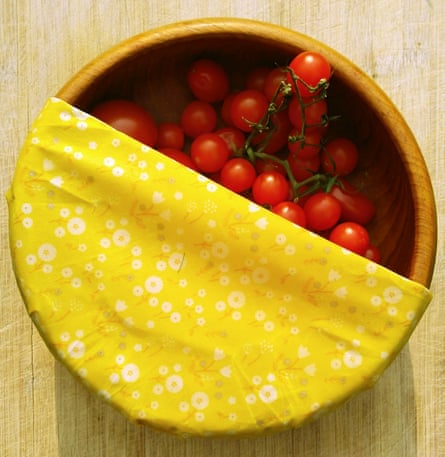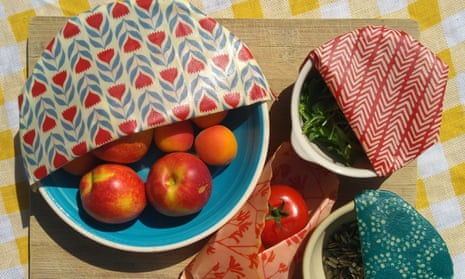For 70 years, the world’s plastic usage has grown inexorably from humble beginnings to a position where humanity now produces roughly its own weight in plastic every year.
But is there a turning point in view? Guardian revelations about the scale of plastic waste and the threat it poses has finally prompted the authorities to take the issue seriously. Michael Gove is considering a deposit return scheme for plastic bottles, Sadiq Khan is looking at new water fountains to contain the plastic proliferation, and now Theresa May has set out her own plastic-free stall.
As ever, our readers are ahead of the curve, detailing a range of ways that individuals can avoid plastic. Respondents to a Guardian callout said they found it easy when it comes to using reusable water bottles and fabric tote bags. However, trying to live a completely plastic-free life can be challenging.

Jenny Derry, who lives near Lichfield in Staffordshire, launched Anything But Plastic in October, an online shop selling plastic-free items in the UK. After three years of working in outdoor equipment shops, she became fed up of unwrapping items which were already individually wrapped in plastic and quit her job.
“I started by trying to cut plastic out of my own life. The problem was I found it got very time consuming to do so as I had to actively seek out replacements. This meant it also became more expensive, as I was having to source plastic-free items from many different places. Why should it be such hard work to avoid plastic?”
Derry said her website aims to make it easier for people in the UK to buy plastic-free products as cutting back shouldn’t have to be hard, inconvenient or time-consuming.
“I’m hoping to get rid of those obstacles and bring about some positive change. Many of us are aware of the need to do something about plastic pollution but lack the means or tools to be part of the solution. It needs to be made more widely known that the alternatives to plastic exist so that people can consciously choose to use less plastic.”

Shunning plastic is not always simple though when a small but essential item becomes necessary for day-to-day life.
One Guardian reader, who asked to be kept anonymous, said she uses straws for hot and cold drinks after being diagnosed with Bell’s Palsy a few years ago. Though she made sure to recycle them after use, reading about how bad they are for the planet prompted her to try and find an alternative.
“I have now ordered some stainless steel straws that come with a cleaning brush. Straws might seem like a little thing, but I use several a day, so it is a big thing for me.”
They may be little but with Americans using 500 million straws a day, the National Geographic calls them “one of the most insidious polluters” because of the harm they cause to sea life.
For Leslie in Reading, if you find yourself unable to avoid plastic then try and reuse it. “I use plastic envelopes sent to me in the post to pick up dog poo. I also wash and reuse freezer bags so they don’t go to waste.”

Some Guardian readers mentioned already making the switch to soap and shampoo bars, as well as bamboo toothbrushes and natural mineral toothpaste that is free of colourants, foaming and bleaching agents and preservatives.
Anna, who is from the US and lives in London, said she knows Americans can be guilty of excess but was still shocked by the amount of plastic wrapping used on food in the the UK.
“Seriously, the cucumber wrapped in plastic is an abomination of all things holy. I know extending the life of fruit and veg is something to consider, but I’m not buying into those cucumbers. Just eat them quickly.”

Anna tries to avoid plastic by using reusable make-up pads which were made by a friend’s mum in Denmark.
“They are hand-knitted with cotton yarn and you just wash them after each use. The one-time cotton pads I used to swear by would just get tossed, and the plastic packaging they came in would go straight to fill or to an incinerator. What a waste of energy to produce something with such a short shelf life!”
Ariane, 30, also living in London, not only tries to avoid plastic but is a zero-waste enthusiast and tries to switch to non-disposable items in a bid to do more for the environment.
“It all started with carrying around my own water bottle and fabric tote bag. Since then I have been gradually making little changes from using a reusable KeepCup to swapping tissues for a handkerchief. I’ve also switched to using a menstrual cup; I opt for fruit and vegetables without wrapping, and use pretty scarves from charity shops as wrapping paper,” she said.
“The cost of convenience is not worth trashing the planet when all it takes is a small change in habit. In general I find that switching to non-disposable items makes me appreciate what I own a lot more.”

Attempting to move away from using plastic wrapping to keep food fresh Kath Austin, from Cambridge, founded BeeBee Wraps around four years ago after a friend told her waxed paper had been used in the past.
“Initially, I made wraps that were simply coated in beeswax however they would crack under cold temperatures in the fridge. Adding jojoba oil made them more supple, and then the addition of tree resin made them extra grippy to hold onto bowls and plates too.
“All of the ingredients used are natural and non-toxic, plus using organic cotton means they are washable in cool water and after their year-long life will go on the compost heap or green bin to fully biodegrade.”
Available in various colours and designs, Austin said her wraps don’t just reduce waste but perform better than their plastic counterparts.
“There is no build-up of condensation so food doesn’t sweat but can breathe instead. We find customers who buy sourdough bread, which comes mostly without packaging, have found a way to extend the life of their loaves using our wraps,” she said.
“Plastic was considered a wonder material as it was cheap and brilliantly robust - so robust it is virtually nondegradable. Every piece of plastic ever created is still here on the planet causing untold harm to our natural world and now to us too. Returning to a healthy relationship with how we consume any sort of material will help us all to understand our own personal impact on the planet and on each other.”

Comments (…)
Sign in or create your Guardian account to join the discussion